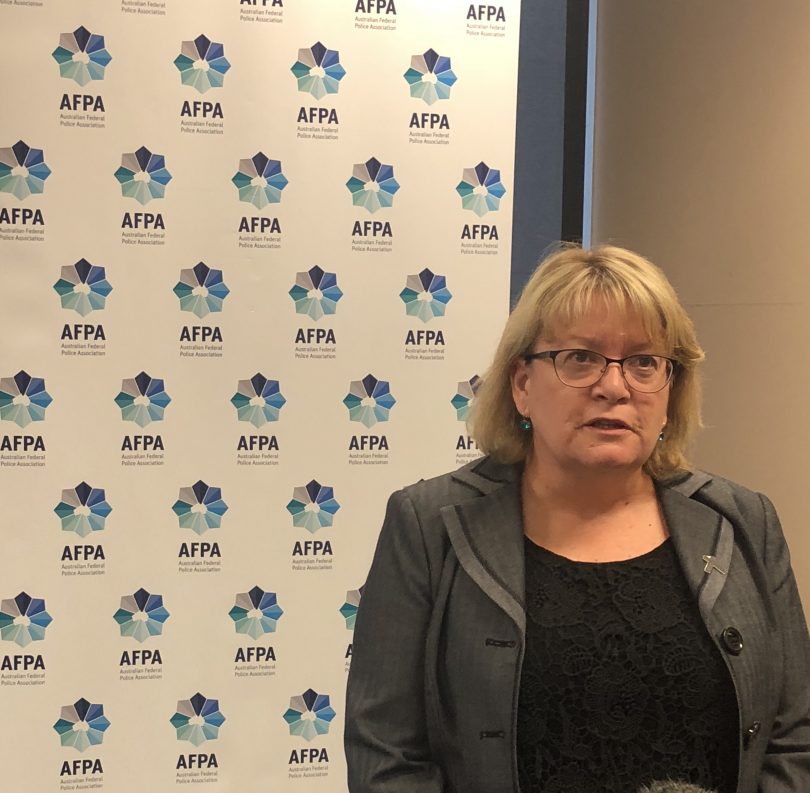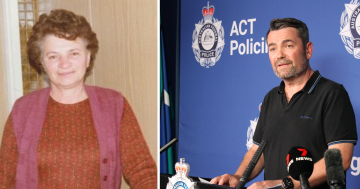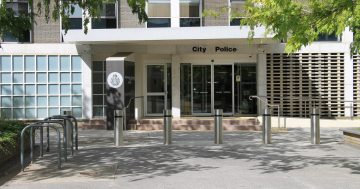
Police are struggling to cover a growing ACT, says AFPA President Angela Smith. Photo: File.
ACT Policing is responding to potentially life-threatening situations with insufficient numbers and a shortage of officers is putting the community at risk, according to the Australian Federal Police Association (AFPA).
Despite a real increase in policing staff in 2017-2018, police are struggling to fill patrol cars and a lack of numbers is leading to wasted time and inefficiencies, says AFPA President Angela Smith.
“We regularly get reports from members telling us that police numbers are low, especially in General Duties,” Ms Smith says. “General Duties policing is your frontline policing role, it’s a dangerous job, and by not having adequate police officers on the ground makes it an even more dangerous job.”
She said that recently police had to respond to an incident where a gun had been fired but only one sergeant and two constables were available.
“Usually a matter like this would require as many policing resources as possible due to the dangerous nature of it,” she said.
“You don’t know what you’re walking into, whether you are going to be shot or shot at. This makes me extremely uneasy that members are going to firearm incidents without back-up or support.”
Ms Smith says a lack of resources is having a negative impact on the health of officers.

AFPA president Angela Smith. Photo: Supplied.
“Patrol Sergeants are having to scramble at the commencement of each shift to find enough people and often they cannot find enough and therefore function with dangerously low numbers,” she said
They were continuously being asked to do ‘more with less’, putting each police officer under strain.
“I’ve had members also tell me that they use their Rostered Days Off – days they should be home recovering, effectively their weekend, or with family – to complete their paperwork,” she said. “These members are coming into work on their days off just to keep their head above water. This is unsustainable, it is wrong and not acceptable.”
The ACT has experienced a steady decline in per person expenditure since 2013-14, which the Productivity Commission’s report on government services describes as desirable, highlighting more efficient police expenditure.
However, the latest report also details that the number of operational staff per 100,000 people has decreased consistently since 2015-16, and significantly since 2012-13, dropping from 231 to 205, per 100,000.

Full-time staff has declined since the start of the decade, despite a population increase of 50,000 during the same period. Photo: File.
The AFPA says that ACT Policing staff needs to stop being viewed through an HR lens, with paper-based counting not translating into officers in patrol cars.
“We frequently get told that patrols are down to one sergeant and three or four constables, with reinforcements coming in on overtime or ‘risk managing’ the numbers. More people doing overtime means fewer people having breaks away for the grinds of the job,” it said in a recent social media post.
The ACT has the lowest number of per capita operational policing staff in the country in every year covered by the Productivity Commission report, going back to 2012-13.
During ACT Legislative Assembly estimates, Opposition Police and Emergency Services spokesperson Guilia Jones questioned the ACT’s Chief Police Officer, Assistant Commissioner Ray Johnson about the decline of full-time staff since the start of the decade, despite a population increase of 50,000 during the same period.
Mr Johnson said part of the decrease could be attributed to administrative changes, with 145 Canberra-based Specialist Response Group (SRG) officers now being excluded from ACT Policing numbers, but on call if required.
Mr Johnson also lauded an increase in police funding that would allow for an extra 69 full-time staff being employed.
“We go ahead again next year, we went ahead last year, in terms of government funding for staff,” he said.
But workload was still a concern. “I’m certainly concerned about the workload police are under at any particular time,” Mr Johnson said.
According to the Minister for Police and Emergency Services, Mick Gentleman, the latest budget sets aside $35 million for police staff, and includes the implementation of a new police service model with demand rostering.
ACT Deputy Chief Police Officer, Michael Chew told estimates there were no minimum requirements for staff numbers across stations during night shifts.
Typically teams include one sergeant and nine constables, although reaching these numbers weren’t common. The AFPA puts these numbers closer to one sergeant and six constables “on a good shift”.
Mr Johnson said ACT Policing had a Territory-wide approach to staffing, so other stations could help meet shortages.
“There may be times where there is a sergeant and a two-person car at Woden, and calls for service will be dealt with at Belconnen,” says Mr Johnson.
But the AFPA want to see more staff as soon as possible to help take the strain off police members.
“Canberra’s population has grown and so has its suburban footprint. This equates to greater pressure on police resources and officers,” Ms Smith said.
“[It’s the] biggest investment by the ACT Government in years for police in the last budget and we thank the ACT Government for that, but when will ACT Policing see those additional 69 staff?”





















